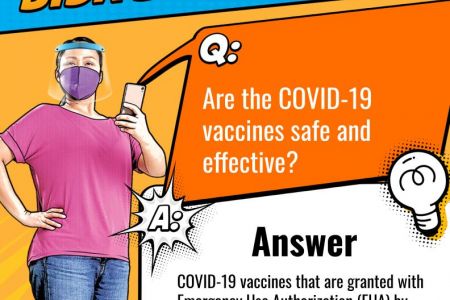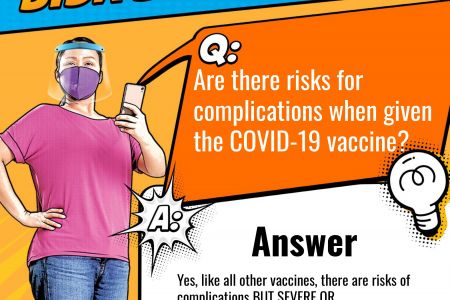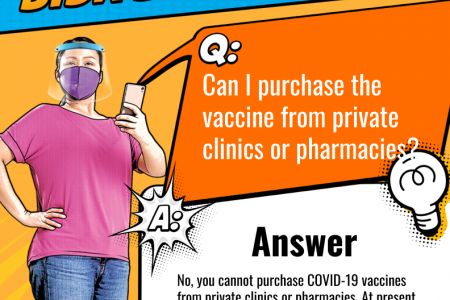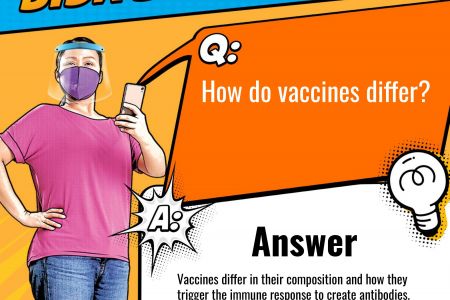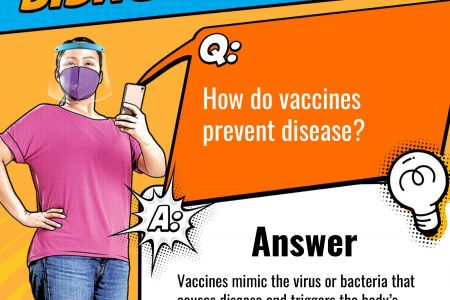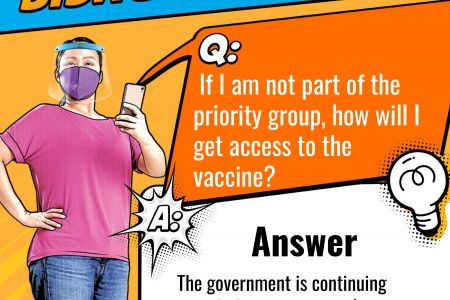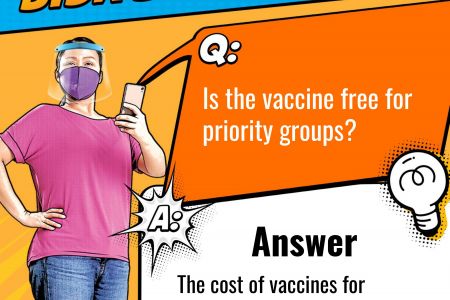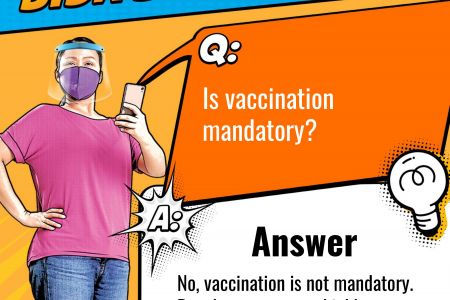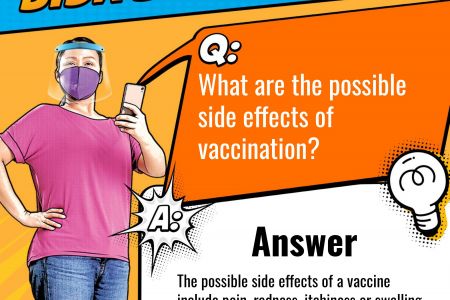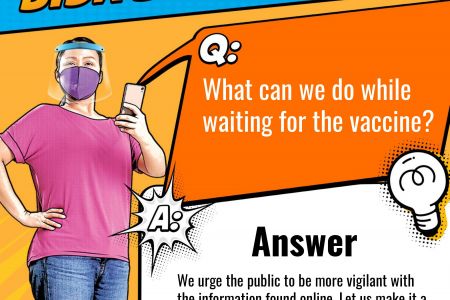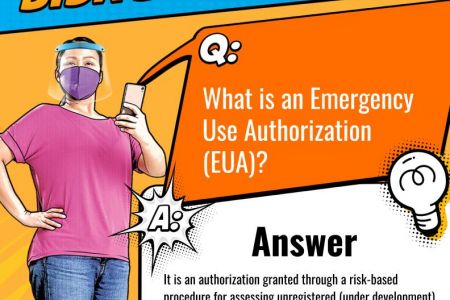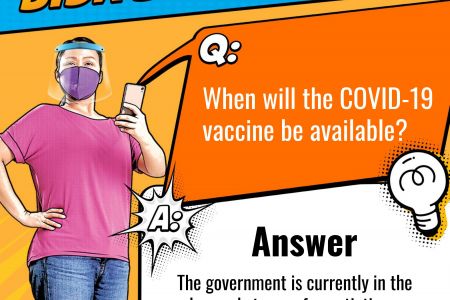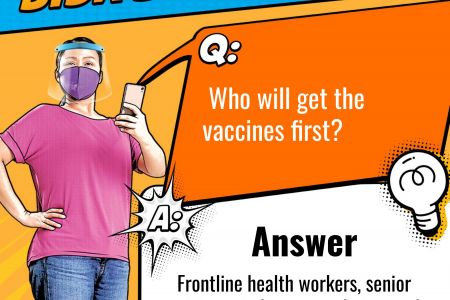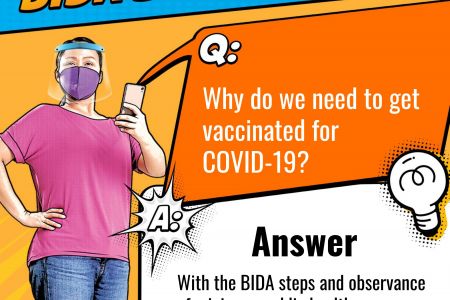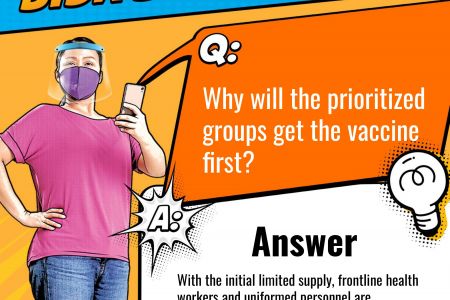Vaccine FAQs from DOH
1. How do vaccines prevent disease?
Vaccines mimic the virus or bacteria that causes disease and triggers the body’s creation of antibodies. These antibodies will provide protection once a person is infected with the actual disease-causing virus or bacteria.
2. How do vaccines differ?
Vaccines differ in their composition and how they trigger the immune response to create antibodies. These antibodies protect the body from microorganisms and serve as protection once a person gets infected with disease. Vaccines can be inactivated, weakened or killed copies of the whole or part of the virus or bacteria, or genetic product (like mRNA vaccines) that creates protein copies without causing disease.
3. What are the possible side effects of vaccination?
The possible side effects of a vaccine include pain, redness, itchiness or swelling at the injection site (which may last a few hours); fever; feeling of weakness or fatigue; headache; dizziness; diarrhea; or nausea. Consult the nearest healthcare professional if you experience any of these.
4. Is vaccination mandatory?
No, vaccination is not mandatory. But the government highly encourages the public to get vaccinated and be protected against preventable disease.
5. Why do we need to get vaccinated for COVID-19?
With the BIDA steps and observance of minimum public health standards, vaccination is an important way to protect yourself from getting severe COVID-19.
6. When will the COVID-19 vaccine be available?
The government is currently in the advanced stages of negotiations with various vaccine manufacturers. We expect the first vaccine supply to arrive in the first quarter of 2021.
7. What is an Emergency Use Authorization (EUA)?
It is an authorization granted through a risk-based procedure for assessing unregistered (under development) vaccines or drugs during public health emergencies of international concern. It aims to expedite availability of the vaccine or drug to people affected by public health emergency based on essential set of available quality, safety and efficacy performance data.
8. Who will get the vaccines first?
Frontline health workers, senior citizens, indigent population, and uniformed personnel are the priority groups to be vaccinated.
9. Why will the prioritized groups get the vaccine first?
With the initial limited supply, frontline health workers and uniformed personnel are prioritized since they have higher risk of exposure while on duty and to allow them to continue fulfilling their duties in both the public and private sectors. Vulnerable groups such as the elderly and the indigent population, are prioritized guided by the principle of equity.
10. Can I purchase the vaccine from private clinics or pharmacies?
No, you cannot purchase COVID-19 vaccines from private clinics or pharmacies. At present, only the government is duly authorized to procure and administer vaccines. Until a full market authorization is issued by the Philippine FDA, any COVID-19 vaccine should not be sold to the public.
11. Is the vaccine free for priority groups?
The cost of vaccines for priority groups will be shouldered by the Philippine government.
12. If I am not part of the priority group, how will I get access to the vaccine?
The government is continuing negotiations to ensure adequate vaccine supply for all Filipinos, including those not in the priority groups.
13. Are the COVID-19 vaccines safe and effective?
COVID-19 vaccines that are granted with Emergency Use Authorization (EUA) by the Food and Drug Administration (FDA) are considered safe and effective based on the available evidence to date.
14. Are there risks for complications when given the COVID-19 vaccine?
Yes, like all other vaccines, there are risks of complications BUT SEVERE OR LIFE-THREATENING REACTIONS ARE EXTREMELY RARE. The benefit of protection against severe COVID-19 is greater than the risk. Anyone who will get the vaccine will be properly evaluated and closely monitored by health professionals to further minimize any risk.
15. What can we do while waiting for the vaccine?
We urge the public to be more vigilant with the information found online. Let us make it a habit to fact check and verify with reliable sources (DOH Facebook page, DOH website, WHO website, PIA website) regarding new information. Continue observing the minimum public health standards to prevent further transmission of the virus.
Contents taken from Department of Health

